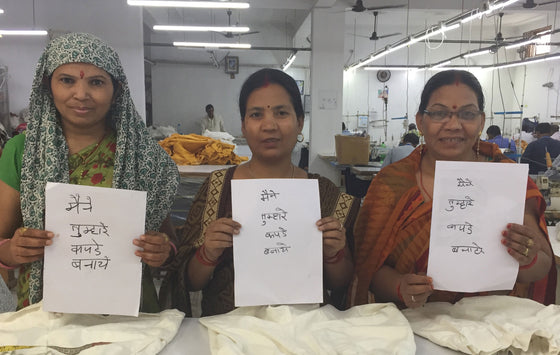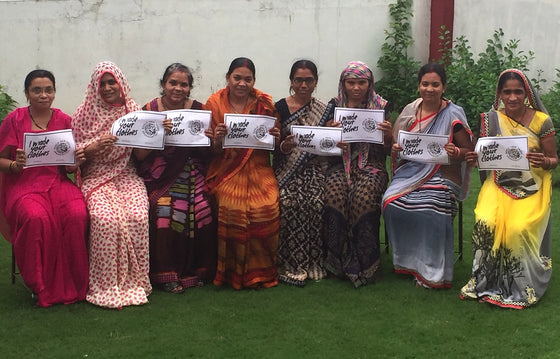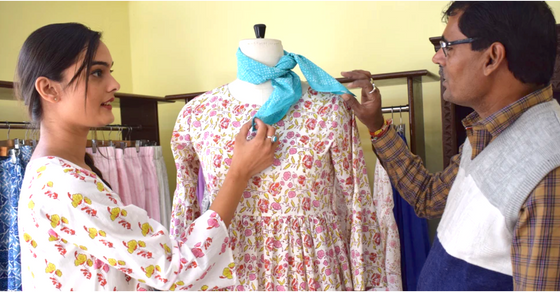Fit/Sizing/Care
FIT
Our styles are meant to give room to breath and move. We use fine tailoring coupled with a relaxed, comfortable fit.
We use a fit guide for each of our styles to provide more information about the fit that was intended.
Slim Fit: a close fit to the body. Regular Fit: a comfortable, relaxed fit with room around the body. Generous Fit: a very loose fit (such as in our oversized blouses) with lots of room around the body for ease of movement.
SIZING
|
h4XS/ 36 |
h4S/ 38 |
h4M/40 |
h4L/ 42 |
h4XL/44 |
|||
|
h4chest |
h435.5 inches/ 90 cm |
h437.5 inches/95 cm |
h439.5 inches/ 100 cm |
h441.5 inches/ 105 cm |
h444.5 inches. 113 cm |
h44cm extra from body |
|
|
h4waist |
h426 inches/ 66 cm |
h428 inches/ 71 cm |
h430 inches/ 76 cm |
h432 inches/ 81 cm |
h435 inches/ 89 cm |
h4fitted |
|
|
h4low waist |
h428 inches/71 cm |
h430 inches/76 cm |
h432 inches/ 81 cm |
h434 inches/ 86 cm |
h437 inches/ 94 cm |
h4fitted |
|
|
h4hip |
h437 inches/ 94 cm |
h439 inches/ 99 cm |
h441 inches/ 104 cm |
h443 inches/ 109 cm |
h446 inches/ 1 |
h44cm extra from body |
|
WASHCARE
All garments have been washed several times during the printing/dyeing and manufacturing process.
CARE for 100% cotton
We recommend cold water machine wash (up to 30 degrees celsius) with a bio detergent and either tumble dry on low heat or line dry in shade for all of our 100% cotton garments/homewares (except for quilts).
Iron on reverse side of garment following fabric settings.
Do not use bleach or stain remover.
Cold water wash and low heat drying or line drying in the shade will increase the life of the garment, prolong the vibrancy of the colors and reduce energy use. Shrinkage on all cottons is minimal, approximately 3%.
Garments/homewares are dyed or printed using AZO free, low-impact, pigment or reactive dyes unless otherwise noted. These dyes are color-fast, but care should still be taken to wash with like colors to retain the vibrancy of the colors.
CARE for 100% cotton quilts
For quilts with cotton fill, we recommend spot or light surface cleaning only with a damp cloth and mild detergent. Eco-friendly dry cleaning is also recommended.
CARE for herbal/vegetable dye items
Vegetable dyes are not colorfast and are specifically marked in the product description. We strongly recommend that all vegetable dye products be washed once before use in a cold water wash with minimal detergent. Wash separately. Tumble dry on low heat or line dry in shade. Iron on reverse side. Do not use bleach or stain remover.
Please keep in mind that indigo dye does continually fade over time. This is the nature of true indigo dye and is not a defect, but rather a sign of the 'living' nature of the dye.
CARE for silk and cotton/silk
For our silk and cotton silk garments/homewares, we also recommend gentle cycle machine wash cold water (up to 30 degrees celsius) or delicate hand washing to increase the life of the garment and reduce the environmental footprint from energy use, detergents and water wastage.
Tumble dry on low heat or line dry in shade.
Iron on reverse side of garment following fabric settings.
Do not use bleach or stain remover.
Dry cleaning using an eco-friendly service is also recommended.
CARE for linen and cotton/linen
For our linen and cotton linen garments/homewares, we also recommend gentle cycle machine wash cold water (up to 30 degrees celsius) or delicate hand washing to increase the life of the garment and reduce the environmental footprint from energy use, detergents and water wastage.
Tumble dry on low heat or line dry in shade.
Iron on reverse side of garment following fabric settings.
Do not use bleach or stain remover.












